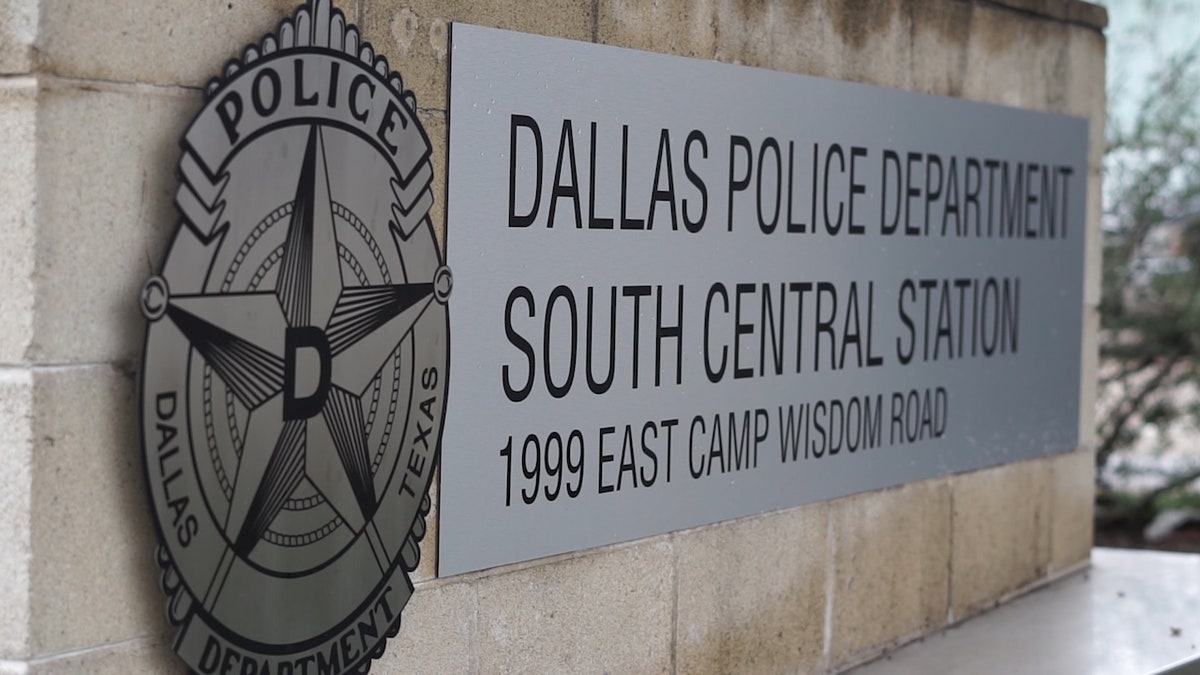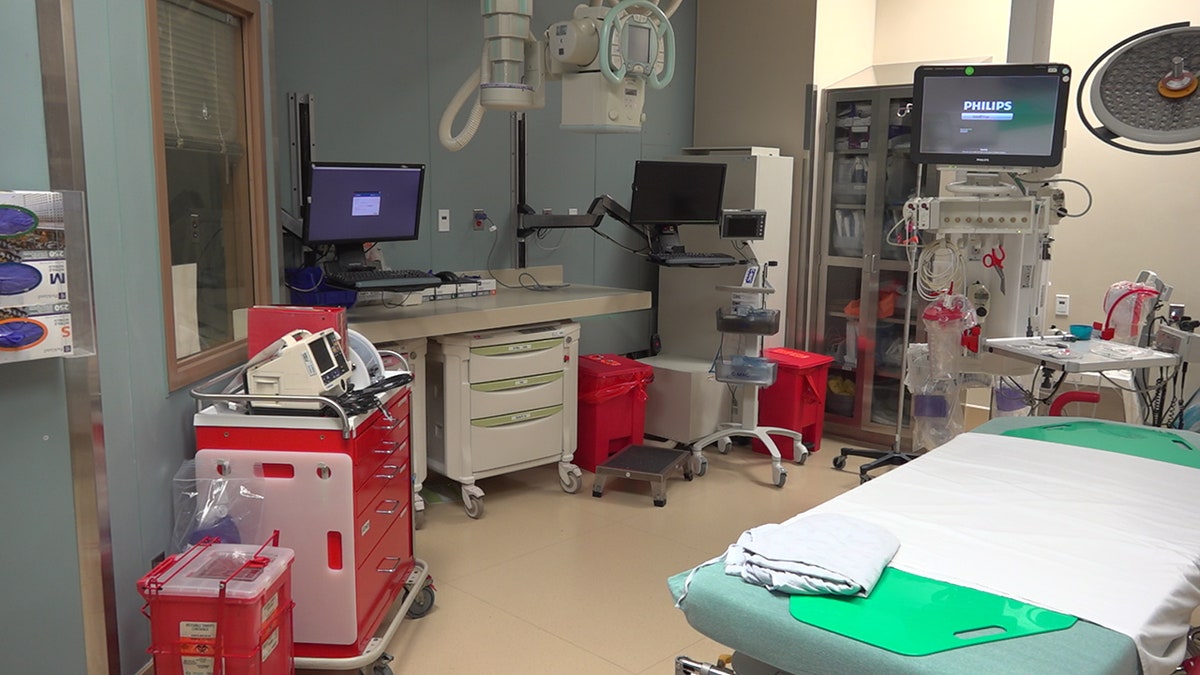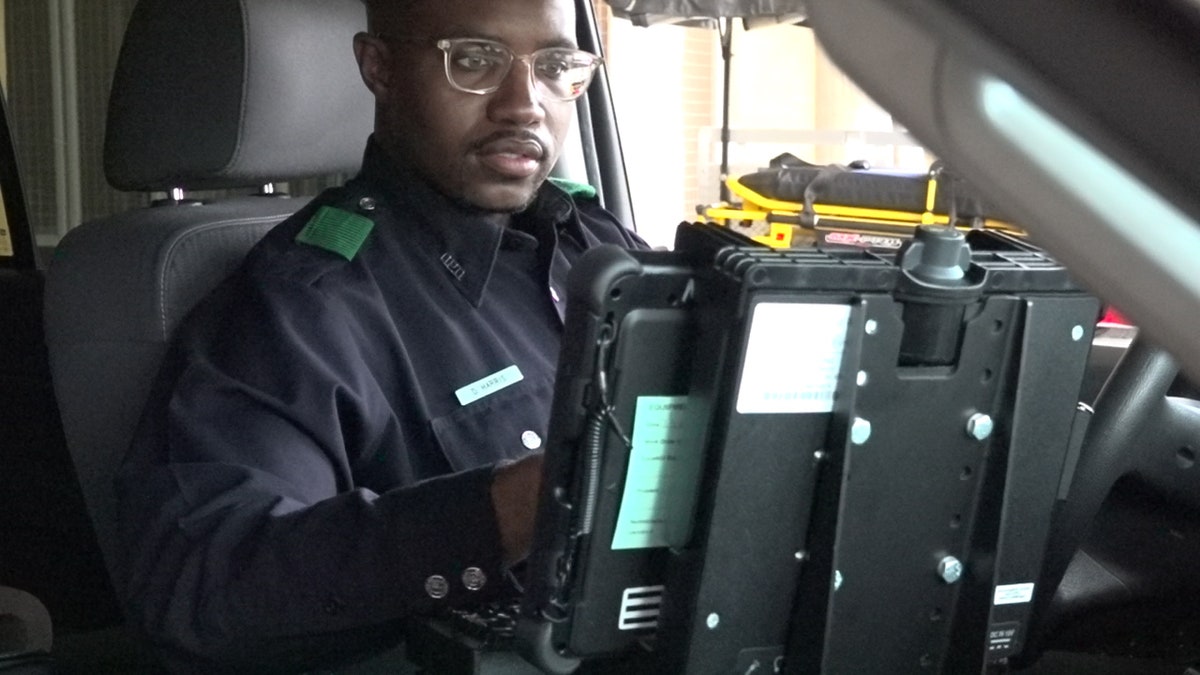Texas program changing response to mental health 911
The RIGHT Care Team, made up of a paramedic, social worker, and police officer operates in Dallas responding to 9-1-1 calls related to mental health treatment.
DALLAS, Texas – In the wake of the death of George Floyd, police officers are part of a national conversation. Calls demanding the defunding of police emerged from protests following the death of Floyd, a Black man who was killed while in the custody of Minneapolis police in May.
In response to those calls, President Trump signed the Safe Policing for Safe Communities Executive Order, an alternative to defunding the police. The order strengthens a national database to track the misconduct of officers and gives financial incentives to local police departments that opt for co-responder programs, which send a social worker with police when they respond to nonviolent calls involving mental health.

The RIGHT Care Team responds to people in a mental health crisis in south Dallas. The team responds out of the South Central Police Station.
Such programs are already starting to pop up across the country, Denver launched the Support Team Assisted Response Program in June. And in Texas, Dallas has had the RIGHT Care Program since 2018.
A RIGHT Care team includes a police officer, paramedic and social worker who respond to 911 calls related to mental health.
The city implemented the program in South Dallas as a three-year pilot and mental health expert Bonnie Cook said programs like the one in Texas and in Colorado are aimed at saving lives.
“The team can look at a situation and determine what the mental health or mental illness component of this issue might be,” Cook said. “By giving officers these resources, it allows the mental health component to be with the mental health experts and the policing to be done by the police experts.”

Since 2018, the team has responded to more than 6,000 calls. The team is able to keep people out of emergency rooms and jail.
According to Parkland Hospital, the team responded to more than 2,500 mental health emergency calls the first year in operation, diverting 31 percent of those calls from jails and hospital emergency rooms to community resources.
Jerromie Jones has been a paramedic on the RIGHT Care team since it started in 2018. On a daily basis, Jones said the team listens to the dispatchers, responding to a call that is believed to be related to a person with a mental health concern. Once the team gets the call, they will head to wherever the person is, whether it be a house or somewhere on the street.
“When we get there, the officer will make sure that everything is safe and then the medic will get some base line vital signs to make sure they don’t need any immediate health attention and then we turn it over to the social worker,” Jones said. “We can determine what clinic they can go to in the next 30 minutes and see if they need medications refilled or see if they just need an evaluation from a mental health professional.”
DOWNLOAD THE FOX NEWS APP HERE
Treatment Advocacy Center reports people with an untreated severe mental illness are 16 times more likely to be involved in fatal police shootings. Cook says a program like RIGHT Care can help change that.
“When someone is already in a state of depression and anxiety and you are already struggling, to have a big police presence come into the space can make a bad situation worse,” Cook said. “This will let someone call me asking for help and I can say ‘Where do you live, where are you?’ And the RIGHT Care team can be sent out to help.”

Dallas Police Officer Dontario Harris has been with the RIGHT Care team for the last two years.
Dallas Police Officer Dontario Harris, a member of the team, echoed Cook during an interview with Fox News. Harris said teams like this can help save the lives of police officers and those calling for help.
“Having a third party with us who specializes in social work kind of takes a lot off of our shoulders because we are not licensed or specialized in that area. So having that avenue is a big help to us and to the community,” Harris said. “This is really changing the outlook on how people look at policing, which helps me.”
The team of three continues to operate even through the COVID-19 pandemic, putting social distancing measures in place and using personal protective equipment.
The program was initially funded through a grant from the W.W. Caruth Jr. Fund-Communities Foundation of Texas, but the money ran out earlier this year. However, both county and city officials are considering allocating additional funding because of its success.
As of now, the Caring 4 Denver fund has given the STAR Program in Colorado at least six months of funding to prove itself






















